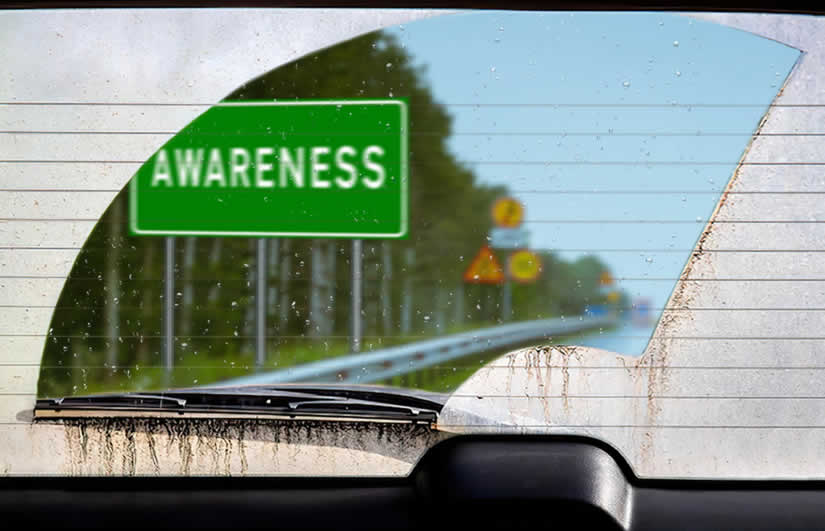Driver awareness is a combination of responsibilities that include:
- Your ability to drive
- Legal obligations and vehicle safety
- Road traffic laws
- How your driving may impact others
Your Ability to Drive
It’s often easy to jump behind the wheel of your car without really considering your ability to drive at that time. Be aware and take a moment to think about your current condition and how it may affect your safety and the safety of other road users.
Drink Driving
At a roadside breath test, blowing over 35 micrograms per 100 millilitres of breath is likely to see you charged with drink driving. Drink driving penalties include (at least) a driving ban or 10 penalty points and a significant fine. The endorsements (DR10) remains on your licence for 11 years, so when you do start driving again, your car insurance cost will be significantly higher.
Drink drivers have a slower reaction time of up to 25 percent. There’s various factors that determine how much you can drink legally and drive, but as little as one alcoholic drink can put you over the limit. If you’re going to drive, keep it simple and safe, don’t drink alcohol.
Drug Driving
Being convicted of drug driving carries similar penalties to drink driving. As with alcohol, drugs affect people in various ways from slower reaction times to becoming aggressive behind the wheel.
Be aware that prescription drugs and even some over-the-counter drugs and medicines can make you drowsy. Always read the label before taking medicines, particularly if you intend on driving.
Feeling Tired, Unwell or Stressed
Other factors that affect your driving can be if you’re tired, feeling unwell or if you’re highly stressed or emotional. Awareness of how you are feeling and how it may impact your ability to drive is essential.
Legal Obligations and Vehicle Safety
Driving your car on a public road comes with mandatory legal requirements. As a responsible driver, you must be aware of these legal requirements and ensure they are kept up-to-date. The legal requirements are:
- Insurance.
- Road tax (unless exempt).
- MOT (if over three years old).
- All four road tyes to be in good condition and to have a minimum of 1.6 mm around the entire circumference and across the central three quarters of the tyre.
- All exterior lights are working.
Driving whilst not in accordance with legal requirements typically results in a fixed penalty notice (FPN) where the driver is required to pay a fine and will receive penalty points. More severe instances usually involve the driver receiving a notice of intended prosecution where they may have to attend court.
Vehicle Safety
Running a car also means that you should carry out regular maintenance checks. Basic maintenance checks can help to avoid your car breaking down which can be a risk to your safety. Basic maintenance checks include:
- Engine oil level should be checked at least once each month.
- Engine coolant level should be checked at least once each month.
- Check tyre pressure at least once each month.
- Windscreen washer fluid bottle should be refilled periodically.
- Brake fluid should be checked at least once each year (usually checked with a vehicle service).
- Windows should be kept clean to ensure optimum visibility.
Road Traffic Laws
As the saying goes, ‘driving is a privilege not a right’ and with that privilege of using your car on a public road, all traffic laws must be followed.
All drivers must have awareness of traffic laws and young drivers in particular are more likely to break the law in two dangerous circumstances:
- Using a phone while driving
- Speeding
Using a Phone While Driving
A survey conducted by GoCompare found that 58% of young drivers are using their mobile phone while driving. Mobile phone use ranges from making / receiving calls, reading / writing texts, changing music or reprogramming the sat-nav.
Using your phone while driving means you’re four times more likely to crash. Currently, being caught using a hand-held phone while driving results in six penalty points and a £200 fine. You’ll also lose your licence if you passed your driving test in the last two years.
Speeding
Statistics show that young drivers aged 17-19 (1.5% of UK licence holders) are a third more likely to die in a crash than drivers aged 40-49.
Much of this is due to speeding, and over-confidence plays a significant role. Young drivers tend to overestimate their abilities, particularly on high speed, challenging rural roads. While awareness of road traffic laws is essential, it’s equally important to be aware of your own abilities and lack of experience.
How Your Driving May Impact Others
Being a responsible driver is being a considerate driver, which means having awareness on how your driving can impact other road users and the environment. Inconsiderate driving is a form of careless or dangerous driving and typically involves a driver:
- Undertaking another vehicle
- Tailgating
- Driving through a red light
- Going too fast
- Driving aggressively / road rage
- Knowingly driving a vehicle in defective condition
- Distracted driving (using a phone for example)
- Leaving your engine running unnecessarily (idling)
- Inconsiderate parking
